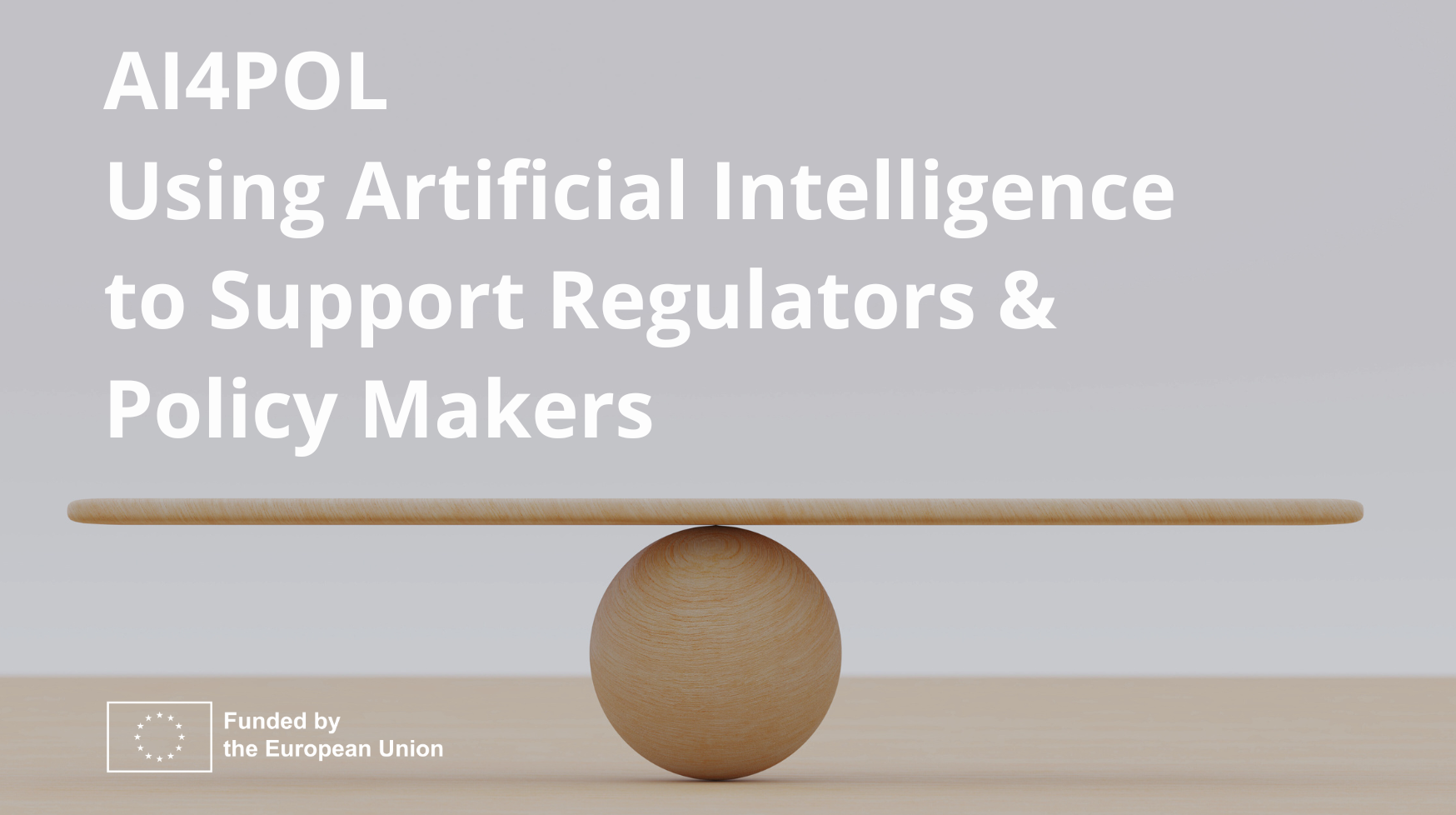European societies largely agree that the use of artificial intelligence and other digital technologies should be in line with human rights, democracy and consumer protection. In recent years, the European Union has passed comprehensive legislation that provides a framework for the use of AI, including the AI Act, the Data Act, and the Digital Markets Act. How do these regulations work in practice? How do users apply the features that are intended to protect them? How does the use of AI in countries that do not share the same values threaten the goals of European policy?
Visionary Analytics staff have joined an international team of researchers to investigate these questions as part of the AI4POL project. It is a three-year EU Horizon Europe-funded project aimed at providing policymakers and public authorities with new insights, AI tools, and data science methods that will enable them to better monitor, evaluate and thus improve the impact of their legislation and measures. By providing cutting-edge tools, insights, and governance frameworks, AI4POL helps regulators ensure that AI development aligns with European values, safeguards citizens’ rights, and promotes trustworthy innovation.
The VA research team’s role is to:
- focus on consumer protection on the one hand and the financial sector on the other;
- develop a method to analyse AI research and development in autocratic states and quantify specific risks for Europe.
Project Partners
Tilburg University – Coordinator (Netherlands), Technical University of Munich (Germany), Centre for Competition Policy, University of East Anglia (United Kingdom), Visionary Analytics (Lithuania), Centerdata (Netherlands), Unitelma Sapienza (Italy), TUM Think Tank, Munich School of Politics and Public Policy – Affiliated Partner (Germany)
Advisory Board: individuals affiliated with
ARTICLE 19 (United Kingdom), Authority for Consumers and Markets (ACM) (Netherlands), Aviva (United Kingdom), Bank of Greece (Greece), Clingendael – the Netherlands Institute of International Relations (Netherlands), Club des Regulateurs (France), EU Commission – DG Competition, Financial Conduct Authority (FCA) (United Kingdom), Organisation for Economic Co-operation and Development (OECD), Rainbird (United Kingdom), Rathenau Institute (Netherlands), Verbraucherzentrale Bundesverband (Germany)
